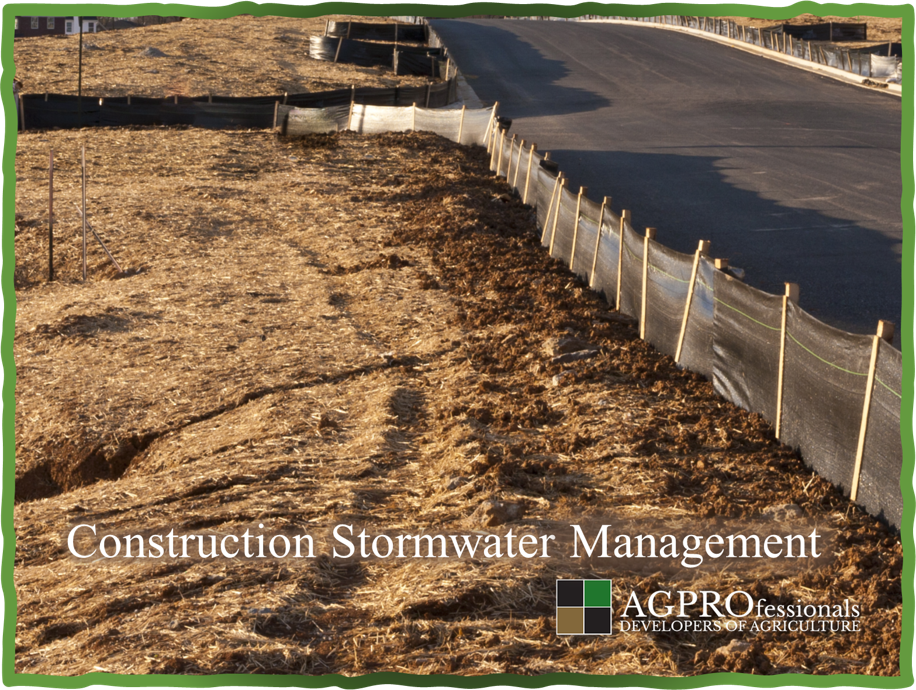What Is Stormwater Runoff?
Stormwater runoff is produced by precipitation like snow or rain that falls onto an impervious or partially impervious surface like roofs, driveways, roads, or structures and is not absorbed into the soil. As the runoff flows, it picks up pollutants and sediment along the way that can be transferred into nearby waterways. Stormwater controls help to manage this by filtering and/or preventing pollution by controlling those sources.
Purpose For Construction Stormwater Management
Construction sites pose a higher risk of transporting pollutants into water. The disturbed ground is less stable, increasing the chances of erosion and/or runoff. The construction equipment and materials (i.e., stockpiles, oils/grease, etc.) found on construction sites may release pollutants onto the ground that can then be transported off-site in a potential discharge event.
Construction stormwater management practices help keep the property in compliance with the Clean Water Act and local, state, and federal stormwater regulations. The proper placement and installation of erosion and sediment control features keep runoff from exiting the site or filters runoff reducing/preventing pollutant runoff.
Who
The Environmental Protection Agency (EPA) handles the minimum requirements of the National Pollutant Discharge Elimination System (NPDES) Permit. This program addresses pollution to waterways by regulating point sources. This is a result of the 1972 Clean Water Act. The EPA has authorized most state governments to regulate this program. Each state agency may differ and refer to these programs by different names. There may be state-specific requirements for compliance with these rules.
Why
The migration of pollutants and water runoff can cause damage to adjacent properties and waterways. The implementation of sediment and erosion control based on your specific site can help prevent off-site migration of pollutants and protect adjacent properties from sediment runoff. Also, having the appropriate permits in place can prevent the risk of potential legal action from the state, municipalities, and private parties.
How Can We Help
Successful implementation and management of a stormwater program requires a clear understanding of the permit requirements in your location. We are knowledgeable in stormwater management and Best Management Practices (BMPs) with the development and implementation of a stormwater program for your specific project.
Our team can help you with your stormwater construction needs by providing the following services:
- Developing sediment and erosion control plans using good engineering practices that meet regulatory agency requirements.
- Preparing Stormwater Management Plans (SWMPs) and Stormwater Pollution Prevention Plans (SWPPP) to meet specific state and/or municipal requirements.
- Assisting clients through the process of submitting the request for a state/federal discharge permit.
- Helping manage coverage including modification, change of contacts, compliance with changing regulations, and terminations.
During construction, we can assist stormwater managers on-site with the following:
- Review of record keeping.
- Verification of BMPs and updating the SWMP or SWPPP as the site moves through the various phases of the construction process.
Please contact us today if you need assistance with your construction stormwater program.

